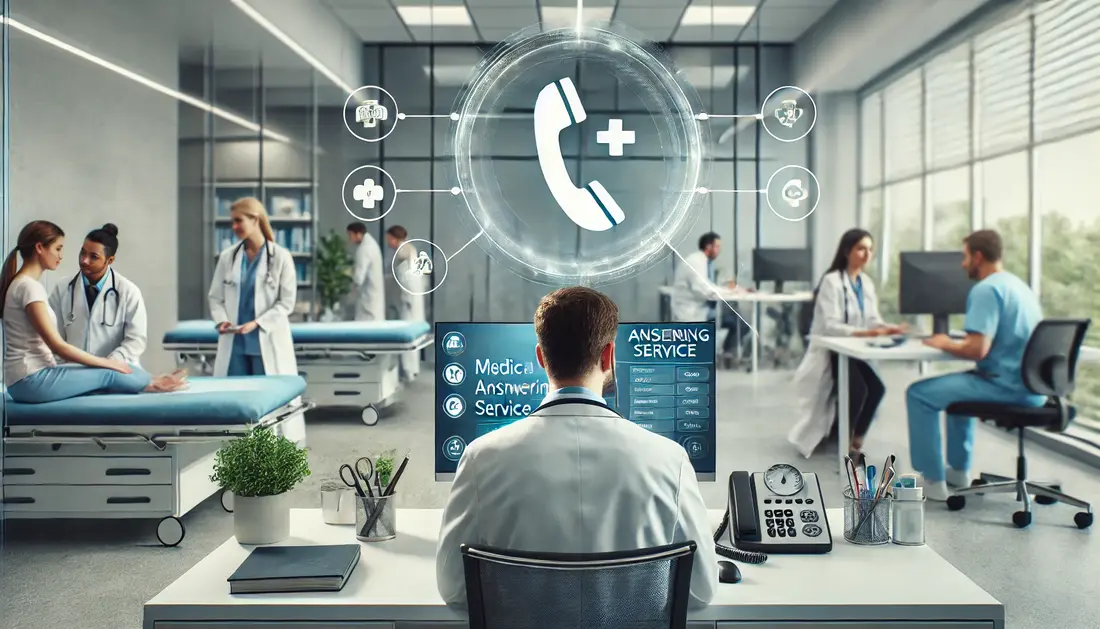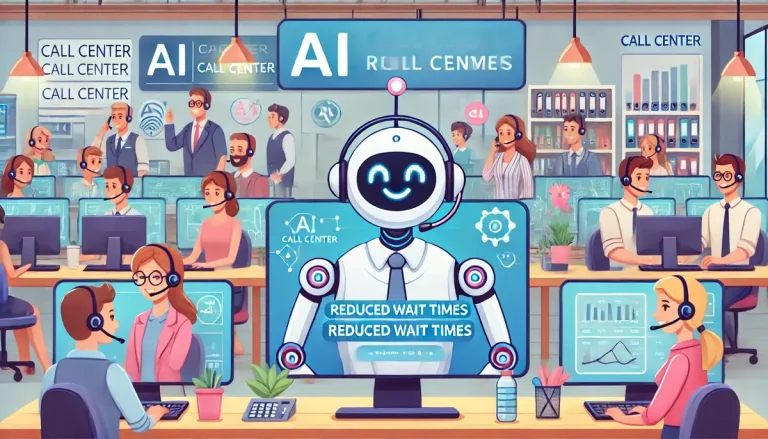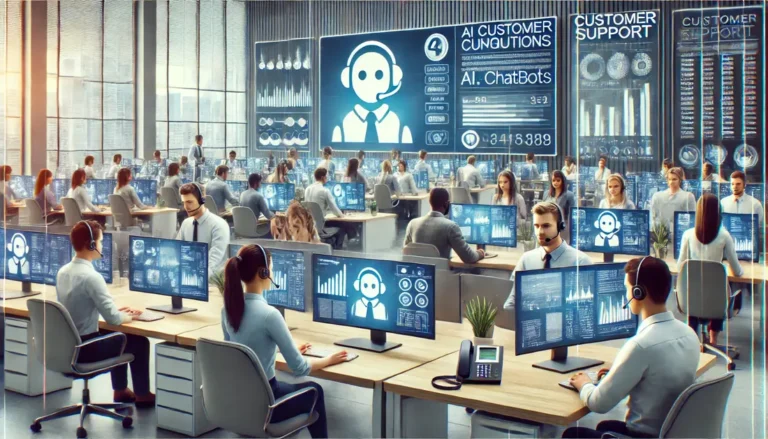In healthcare, medical practices face the dual challenge of providing exceptional patient care while managing an array of administrative tasks. Balancing these responsibilities can be overwhelming, leading to missed calls, delayed responses, and ultimately, dissatisfied patients.
This is where medical answering services come into play, offering a seamless solution to ensure that every patient call is handled promptly and professionally.
By integrating these services, healthcare providers can enhance their operational efficiency, improve patient satisfaction, and focus more on what truly matters—delivering quality care.
The Importance of Medical Answering Services in Healthcare
The demand for medical answering services has surged in recent years, driven by the increasing expectations of patients for accessible and responsive healthcare providers. Patients today expect to reach their doctors anytime, whether it’s during regular office hours or after. Medical answering services bridge this gap by ensuring that no call goes unanswered, regardless of the time or day.
Without such services, medical practices risk losing patients due to missed calls or delayed responses, which can lead to frustration and a decline in trust.
Furthermore, the complexity of managing high call volumes and urgent inquiries necessitates a reliable system that can handle these demands efficiently.
By adopting medical answering services, healthcare providers can maintain continuous communication with their patients, fostering a sense of reliability and care that is essential for building long-term patient relationships.
Benefits of Medical Answering Services
Medical answering services offer a multitude of benefits that extend beyond merely handling phone calls. One of the primary advantages is the significant reduction in the administrative burden on in-house staff.
By outsourcing routine tasks such as appointment scheduling, patient reminders, and general inquiries, medical staff can concentrate more on patient care and other critical duties.
This not only enhances productivity but also reduces the risk of burnout among staff members, who might otherwise be overwhelmed by constant administrative demands.
Additionally, medical answering services are a cost-effective solution for managing communication needs. Hiring and training additional administrative personnel can be expensive and time-consuming.
In contrast, medical answering services provide a scalable solution that can adjust to the fluctuating needs of a practice without incurring the overhead costs associated with full-time employees.
This financial efficiency allows healthcare providers to allocate resources more effectively, investing in areas that directly enhance patient care and practice growth.
Moreover, these services contribute to improved patient care by ensuring that urgent inquiries are addressed promptly. In scenarios where immediate attention is required, such as after-hours emergencies, medical answering services can triage calls and escalate critical issues to the appropriate healthcare professionals.
This swift response not only enhances patient safety but also reinforces the practice’s commitment to providing comprehensive and reliable care.
How Medical Answering Services Improve Healthcare Productivity?
Productivity in healthcare settings is crucial for maintaining high standards of patient care and operational efficiency. Medical answering services play a pivotal role in boosting productivity by managing routine communications that would otherwise consume valuable time and resources.
Tasks such as booking appointments, sending reminders, and handling follow-up calls are efficiently managed by these services, allowing medical staff to focus on more pressing clinical responsibilities.
By handling high call volumes, especially during peak hours, medical answering services prevent the chaos and delays that can disrupt the workflow of a healthcare practice. This streamlined communication process ensures calls are answered promptly, reducing wait times and enhancing the overall efficiency of the practice.
As a result, healthcare providers can maintain a smooth and organized workflow, minimizing interruptions and maximizing the time spent on patient care.
Furthermore, medical answering services contribute to workflow optimization by integrating with existing systems such as Electronic Medical Records (EMRs) and appointment scheduling software. This integration allows for seamless data transfer and real-time updates, ensuring that patient information is accurate and readily accessible.
By automating these processes, medical answering services eliminate the need for manual data entry, reducing the likelihood of errors and saving time that can be better spent on patient interactions.
Compliance and Security in Medical Answering Services
In the healthcare industry, maintaining the confidentiality and security of patient information is paramount. Medical answering services are designed with compliance and security in mind, adhering to strict regulations such as the Health Insurance Portability and Accountability Act (HIPAA). This ensures that all patient data is handled with the highest level of confidentiality and protection.
Medical answering service providers employ robust security measures to safeguard sensitive information. This includes data encryption, secure storage protocols, and restricted access to patient records.
Additionally, personnel working with these services undergo rigorous training to ensure they understand and comply with HIPAA guidelines and other relevant regulations. This commitment to security provides healthcare providers with peace of mind, knowing that their patient information is protected against unauthorized access and breaches.
Moreover, medical answering services implement comprehensive privacy policies and procedures to ensure that all interactions with patients are conducted in a secure and confidential manner.
From the initial call to the final resolution of patient inquiries, every step is monitored and managed to maintain the integrity of patient data. This focus on compliance and security not only protects patients but also upholds the reputation and credibility of the healthcare practice.
Customizing Medical Answering Services for Specific Practice Needs
Every medical practice is unique, with its own set of communication needs and patient demographics. Medical answering services offer the flexibility to tailor their offerings to meet these specific requirements, ensuring that each practice receives a customized solution that aligns with its operational goals and patient care standards.
For small clinics, medical answering services might focus on providing after-hours support, ensuring that patient calls are handled outside of regular office hours without the need for additional administrative staff. Larger practices, on the other hand, may require comprehensive 24/7 coverage to manage a higher volume of calls and more complex patient inquiries.
By offering scalable solutions, medical answering services can accommodate the varying demands of different practices, whether it’s a solo practitioner or a multi-specialty clinic.
Customization also extends to the types of services offered. Some practices may need assistance with call triaging, where urgent cases are identified and escalated appropriately, while others might require detailed appointment scheduling and follow-up reminders.
Medical answering services can adapt their protocols to match the specific workflows and preferences of each practice, ensuring seamless integration and consistent communication standards.
Additionally, medical answering services can cater to diverse patient populations by offering multilingual support and culturally sensitive communication practices. This ensures that all patients, regardless of their language or background, receive the same level of care and attention, enhancing the overall patient experience and satisfaction.
What are the Key Features of a Medical Answering Service?
When selecting a medical answering service, it’s essential to consider several key features to ensure that the chosen provider meets the specific needs of your practice. Here are some critical aspects to evaluate:
- 24/7 Availability: Healthcare emergencies can occur at any time, and having a service that operates around the clock ensures that patient calls are always answered, providing peace of mind to both patients and providers.
- Bilingual Support: In diverse communities, offering services in multiple languages is crucial for effective communication and patient satisfaction. Bilingual support helps in breaking down language barriers and ensuring that all patients receive clear and accurate information.
- Medical Terminology Expertise: The ability to understand and accurately use medical terminology is vital for maintaining professionalism and ensuring that patient inquiries are handled correctly. Trained personnel with medical knowledge can provide accurate information and appropriate responses.
- Integration with Existing Systems: Seamless integration with Electronic Medical Records (EMRs), appointment scheduling software, and other practice management systems is essential for maintaining efficient workflows and ensuring that patient information is up-to-date and easily accessible.
- Customizable Scripts and Protocols: The ability to customize call scripts and response protocols ensures that the service aligns with the specific policies and procedures of your practice, maintaining consistency and professionalism in all patient interactions.
- Secure Data Handling: Ensuring that the answering service adheres to HIPAA compliance and other security standards is non-negotiable. Look for providers that prioritize data security and have robust measures in place to protect patient information.
By carefully evaluating these features, healthcare providers can select a medical answering service that not only meets their operational needs but also enhances the overall patient experience.
What’s the Impact of Answering Services on Patient Satisfaction and Retention?
Patient satisfaction is a cornerstone of a successful medical practice, directly influencing patient retention and the overall reputation of the practice. Medical answering services play a significant role in enhancing patient satisfaction by ensuring that every call is answered promptly and professionally, regardless of the time or day.
When patients know they can reach their healthcare provider at any time, it builds a sense of trust and reliability. This accessibility is particularly important in urgent situations where timely communication can make a critical difference in patient outcomes.
By providing 24/7 support, medical answering services reassure patients that their concerns are always a priority, fostering a stronger patient-provider relationship.
Moreover, the professional handling of calls by trained answering service personnel reflects positively on the practice, presenting a consistent and organized image.
Efficient appointment scheduling, timely reminders, and follow-up communications contribute to a smooth patient experience, reducing the likelihood of missed appointments and enhancing overall satisfaction.
High patient satisfaction leads to increased patient retention, as satisfied patients are more likely to return to the same practice for their healthcare needs and recommend it to others.
In an increasingly competitive healthcare market, maintaining high levels of patient satisfaction through reliable communication is essential for sustaining and growing a successful practice.
How AI Helps Medical Answering Servies?
AI can significantly enhance the functionality of medical answering services in several ways:
- Automated Call Handling: AI-powered answering systems can automatically handle routine inquiries, such as appointment scheduling, prescription refills, and basic health information, reducing the workload on human operators.
- 24/7 Availability: AI allows for continuous support, ensuring that no patient call is missed, regardless of the time or day. This can be especially beneficial during after-hours or when the practice is closed.
- Natural Language Processing (NLP): AI with NLP capabilities can understand and respond to patient inquiries in a conversational manner, improving the patient experience. This also ensures that callers feel heard and understood, without needing to navigate complex menu options.
- Call Triage: AI can analyze the urgency of calls based on keywords and context, allowing it to prioritize emergency cases and route them to the appropriate personnel. This ensures critical calls get attention faster, improving patient safety.
- Data Integration and Updates: AI systems can integrate with Electronic Medical Records (EMRs) and other software used by the practice. This allows real-time updates to patient records, streamlining workflows, and ensuring accuracy in patient data handling.
- Cost Efficiency: AI-driven answering services can reduce the costs associated with hiring additional staff while maintaining high service levels. These systems are scalable and can adapt to the practice’s needs without the financial overhead.
- Patient Insights and Analytics: AI can collect and analyze data from patient interactions, providing insights into frequent questions, common issues, or patient satisfaction. This helps healthcare providers improve their services and address concerns more effectively.
Conclusion
Medical answering services have become an indispensable asset for healthcare providers seeking to balance patient care with administrative efficiency. By ensuring that every patient call is handled promptly and professionally, these services enhance communication, improve patient satisfaction, and allow medical staff to focus on delivering high-quality care. The flexibility and customization options offered by medical answering services make them suitable for practices of all sizes and specialties, providing scalable solutions that grow with your practice’s needs.
Investing in a medical answering service is not just a strategic move to streamline operations—it’s a commitment to improving patient care and fostering a reliable, trustworthy relationship with your patients. As the healthcare landscape continues to evolve, integrating medical answering services will be a key factor in maintaining a competitive edge and ensuring the long-term success of your medical practice.
FAQ Section
- What are medical answering services?Medical answering services are specialized support systems that handle patient calls, appointment scheduling, reminders, and general inquiries for healthcare practices. They provide 24/7 coverage, ensuring that patient communication is managed efficiently, even outside of regular office hours.
- How do medical answering services improve healthcare productivity?By outsourcing routine tasks such as answering calls, scheduling appointments, and sending reminders, medical answering services free up in-house staff to focus on patient care and other critical responsibilities. This leads to a more streamlined workflow and increased overall productivity within the practice.
- Are medical answering services HIPAA-compliant?Yes, reputable medical answering services adhere to strict HIPAA guidelines to ensure the confidentiality and security of patient information. They implement robust security measures, including data encryption and secure storage protocols, to protect sensitive health data.
- Can medical answering services handle after-hours emergencies?Absolutely. One of the key benefits of medical answering services is their ability to provide 24/7 support, ensuring that urgent patient needs are addressed promptly, even outside of regular office hours. This capability is crucial for maintaining patient safety and trust.
- How customizable are medical answering services?Medical answering services offer a high degree of customization to meet the specific needs of each practice. Whether it’s adjusting call scripts, integrating with existing software systems, or providing multilingual support, these services can be tailored to align with the unique requirements of your healthcare practice.
- What cost savings can be expected from using a medical answering service?By reducing the need for additional administrative staff and minimizing missed calls and no-shows, medical answering services can lead to significant cost savings. They provide a scalable solution that adjusts to the practice’s needs without the overhead costs associated with hiring and training new employees.
- How do medical answering services enhance patient satisfaction?Medical answering services ensure that patient calls are answered promptly and professionally, providing timely responses to inquiries and efficient appointment management. This level of responsiveness enhances the overall patient experience, leading to higher satisfaction and increased patient retention.








